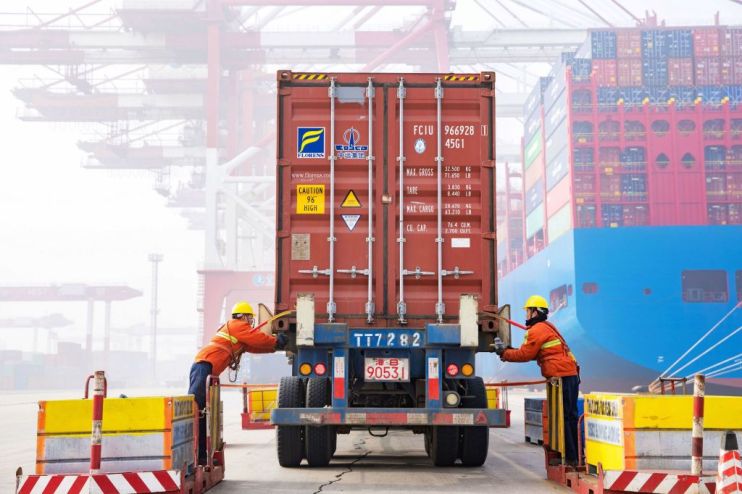European stock markets buoyed as Chinese trade beats expectations

European stock markets have risen this morning, following their Asian counterparts higher after better-than-expected Chinese trade data.
Read more: China hits back after US labels rival a currency manipulator
Official data showed Chinese exports benefited from a falling renminbi and rose 3.3 per cent in July year on year, far exceeding analysts’ expectations of a fall of two per cent.
Imports also fell by significantly less than expected, dropping by 0.4 per cent as opposed to the 1.7 per cent analysts had foreseen. The data suggests China’s economy is holding up in the face of a tariff onslaught from the US.
The figures have acted as a boon to European markets this morning. The pan-European Euronext 100 rose one per cent, France’s CAC 40 also climbed one per cent, while Germany’s Dax rose 0.7 per cent.
Britain’s FTSE 100 climbed by 0.2 per cent. It has consistently lagged behind European stock markets in recent days.
“Consumer stocks are the biggest fallers in the FTSE 100 as consumer confidence remains weak as the chatter of a no-deal Brexit has increased recently,” said David Madden at CMC Markets.
He said there is also pressure on the British banking sector “as the perception is that lenders will find it more difficult to make money in the lower interest rate environment”.
After a torrid week following US President Donald Trump’s dramatic escalation of the US-China trade war, China’s SSE Composite index rose 0.9 per cent last night. Hong Kong’s Hang Seng climbed 0.6 per cent, and Japan’s Nikkei 225 rose 0.4 per cent.
Investors were also cheered by signs that China is holding its currency the renminbi steady, averting a currency war with the US.
Following Trump’s announcement of 10 per cent tariffs on $300bn of goods from China last week, the renminbi has tumbled to the seven-per-dollar level not seen since the financial crisis. It now stands at 7.044 yuan (the unit of the currency) to the dollar.
While the positive trade data from China has lightened investors’ mood, there are challenges ahead, said Julian Evans-Pritchard and Martin Rasmussen, China economists at Capital Economics.
“Exports still look set to remain under pressure in the coming quarters as any prop from a weaker renminbi should be overshadowed by further US tariffs and broader external weakness,” they said in a note.
Read more: Tumbling Chinese currency drags down stock markets on trade war fears
“Meanwhile, we don’t think that recent fiscal easing will be enough to prevent a renewed slowdown in domestic demand, which will weigh on import volumes.”